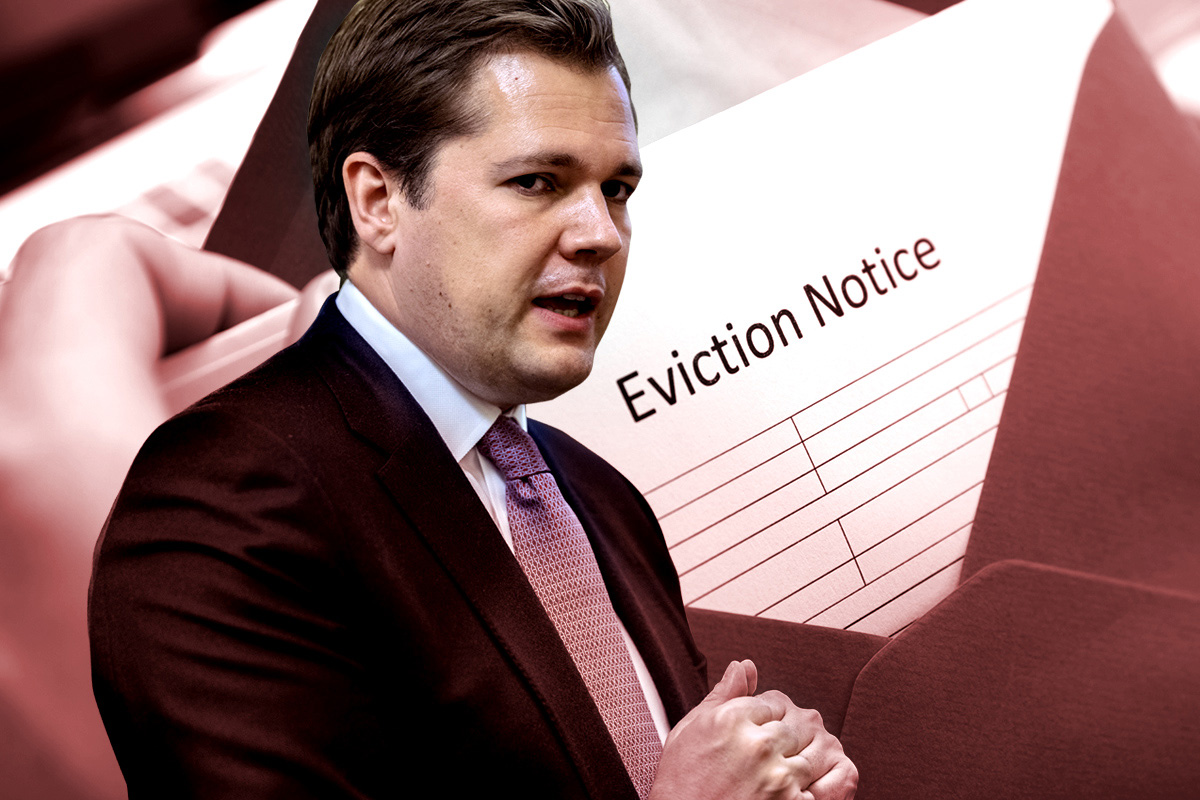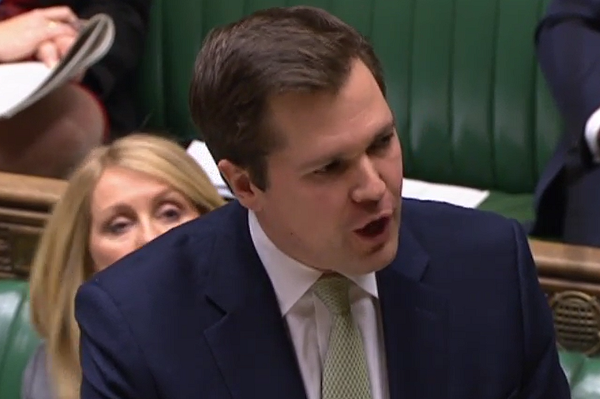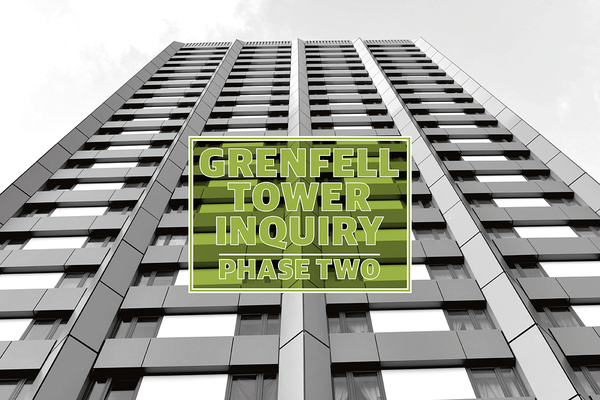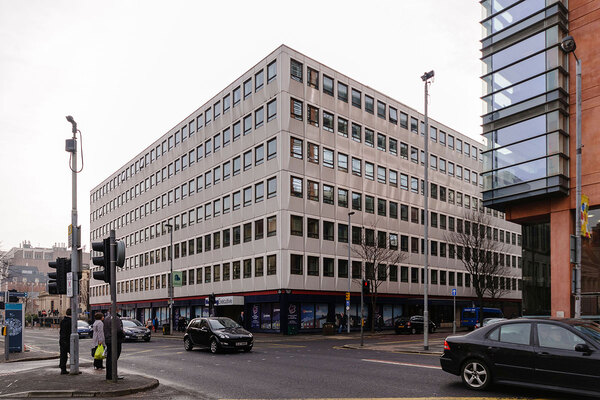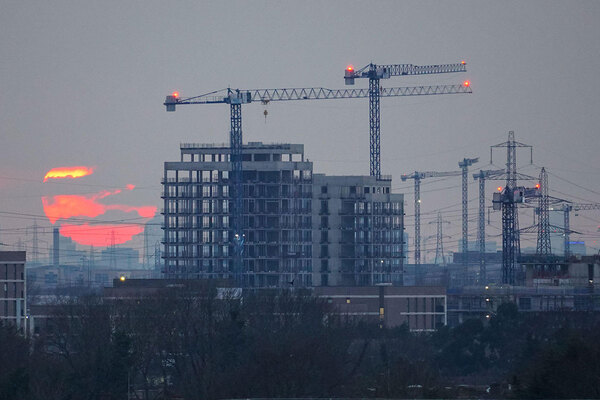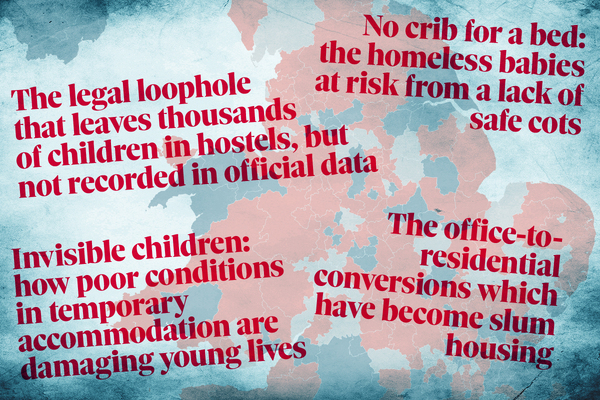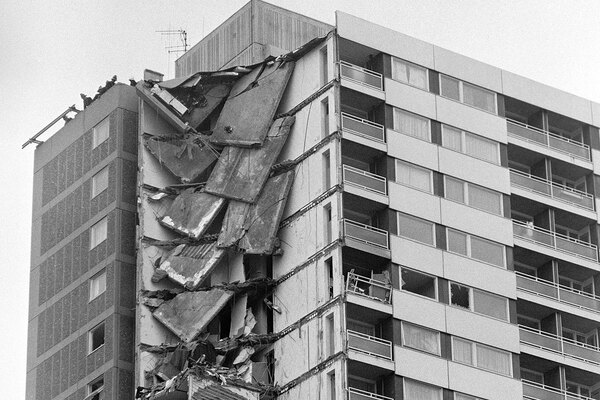After the ban: what will happen after the government has lifted the eviction moratorium?
The government promised that no renter will be evicted during the coronavirus pandemic and made relevant policy amendments to protect them. Ahead of the ban being lifted next month, Lucie Heath takes a look at the changes and finds out whether tenants will be supported. Pictures by Peter Searle and Getty
“The government is clear: no renter who has lost income due to coronavirus will be forced out of their home.”
These were the words of housing secretary Robert Jenrick on 18 March as he announced plans to introduce a “complete ban” on evictions during the coronavirus crisis.
After an initial period of debate on what such a policy would look like, the government decided to impose a blanket ban on possession hearings in courts in England and Wales. As a result, no renter has been evicted through the courts since the end of March.
Ministers have now confirmed that possession proceedings will restart on 24 August. In an attempt to mitigate the impact of evictions resuming, the government has introduced changes to the eviction process that, it said, will support those who have been hardest hit by the pandemic.
However, campaigners, housing lawyers and politicians from both sides have criticised the government’s plans. Many say the changes will have little impact on protecting renters in the courts.
So, are they right? Will the proposals have little impact and can they prevent the “avalanche of evictions” that has been prophesied by so many?
Inside Housing takes a look at the amendments and asks what is likely to happen when the eviction ban comes to an end next month.
There are several parts to the government’s new rules, the majority of which refer to how cases will be managed in the courts once the ban is lifted. The key part for tenants and landlords is that the latter will now be required to provide the court with “what knowledge that party has to the effect of the coronavirus pandemic on the defendant and their dependents”.
Many have expressed their scepticism over how useful a tool this will be to prevent evictions.
“Anything that encourages tenants and landlords to try and reach an agreement is good, but the idea that this practice direction is somehow an answer to the significant problems that we can all foresee is just make believe,” says Marina Sergides, barrister at Garden Court Chambers and co-chair of the Housing Law Practitioners Association.
Alicia Kennedy, director of campaigning group Generation Rent, says the new rules are “worthless” and will not protect “the vast majority of renters who are at risk of losing their home”. Shadow housing secretary Thangam Debbonaire has described this mechanism as “toothless” to MPs in the House of Commons.
Much of this thought is due to one glaring problem with the government’s plans: even if a landlord does provide all of this information to the court, judges cannot take it into consideration if a landlord pursues a Section 21 or Ground 8 eviction.
Section 21 and Ground 8 of Section 8 are both known as ‘mandatory’ eviction grounds. This means that judges have to automatically grant evictions as long as certain circumstances are met.
For Section 21 evictions, which have widely become known as no-fault evictions, landlords can usually evict tenants for any reason as long as they give two months’ notice and the fixed-term tenancy period in their contract has ended. Ground 8 evictions can be pursued when a tenant has racked up at least eight weeks of rent arrears. For both types of evictions, the notice period has temporarily been extended to three months in England and six months in Wales in response to the COVID-19 crisis.
Housing bodies and campaigners have been calling on the government to temporarily amend Section 21 and Ground 8 in order to make them ‘discretionary’ during the coronavirus crisis, which will give judges the power to decide whether it is reasonable to grant an eviction order.
“Anything that encourages tenants and landlords to try and reach an agreement is good, but the idea that this practice direction is somehow an answer to the significant problems that we can all foresee is just make believe”
However, with parliament now in recess, it is clear that these changes will not be introduced before the ban ends. Housing minister Christopher Pincher also confirmed last week that the scrapping of Section 21 would only be implemented as a “priority once the urgencies of responding to the pandemic have passed”.
This is despite a Conservative Party manifesto commitment, first introduced by then-prime minister Theresa May, to abolish Section 21 completely.
Melanie Rees, head of policy and external affairs at the Chartered Institute of Housing, says it is “disappointing” that the government has not acted on its manifesto commitment to end no-fault evictions before the ban is lifted.
Simon Mullings, senior case worker at Edwards Duthie Shamash and co-chair of the Housing Law Practitioners Association, says it is a “scandal” that the government has done nothing to change these grounds, adding that it may “haunt them when the evictions start rolling through”.
The question over how many people are likely to be affected when the eviction ban ends is hotly contested.
A poll carried out by YouGov on behalf of homelessness charity Shelter found that 225,000 private renters are at risk of eviction when the ban ends.
Meanwhile, analysis by Generation Rent estimated that 45,000 households could be made homeless as a result of rent arrears this year – three times the amount that became homeless due to arrears in 2019.
However, the National Residential Landlords Association (NRLA) has accused charities of “scaremongering”. The organisation commissioned a poll which found that 90% of renters had paid their rent as usual since the coronavirus crisis began. Of those who asked their landlord for support during the pandemic, three-quarters received a positive response.
The government has used the latter evidence when defending its stance on evictions.
Quoting the NRLA’s statistics in the House of Commons last week, Mr Pincher said: “I think that the landlord community understands the challenge that the economy faces and that tenants face, and is working proactively to support them.”
But those who are at risk of losing their home due to the crisis will have hoped for a strategy that relied on more than the goodwill of landlords to keep them in their home.
With the chance of legislative change decreasing by the day, lawyers are now hoping that the government will expand its legal aid provision to give those facing eviction a fighting chance in the courts.
Legal aid for housing cases has been dramatically reduced since the Legal Aid, Sentencing and Punishment of Offenders Act (LASPO) came into force in 2013. Earlier this year, Inside Housing revealed that the number of housing cases that have been granted funding has fallen by 40% over the past decade.
“With some careful rewording of the guidance, you could change the situation and we could start to solve some of the problems”
As a result of the cuts, many housing legal aid centres have closed, leaving huge parts of the country without access to any provider. It is unlikely that this already struggling system will be able to cope with demand when the ban is lifted.
Mr Mullings says it is time for the Legal Aid Agency (LAA) to “pivot towards” the crisis and move away from its “gatekeeping” approach to legal aid.
Part of this would involve changing the rules so that legal aid lawyers are allowed to advise clients on benefits, as they were permitted to do before LASPO came into force.
“With some careful rewording of the guidance, you could change the situation and we could start to solve some of the problems upstream of this possession hearing that would mean that actually possession doesn’t need to go ahead because we’ve solved the problem,” he says.
A spokesperson for the Ministry of Housing, Communities and Local Government said the government has “taken unprecedented action to support renters during the pandemic”, including the eviction ban and the furlough scheme.
They added that the government has already committed to ensuring that individuals facing possession proceedings will continue to receive support from the Housing Possession Court Duty Scheme (HPCDS), which provides on-the-day legal support in court. Last week, the LAA launched a tender to place HPCDS services in areas without a provider.
But there is only so much a legal aid lawyer can do if a landlord is intent on pursuing a Section 21 eviction. The government cannot keep its promise that no renter will lose their home as a result of coronavirus until it follows through on its commitment to abolish Section 21 for good.
With hundreds of thousands of renters potentially being put at risk of eviction as a direct result of the pandemic, it could be argued that making these changes make up a significant part of the COVID-19 response and the need to implement them is urgent.
